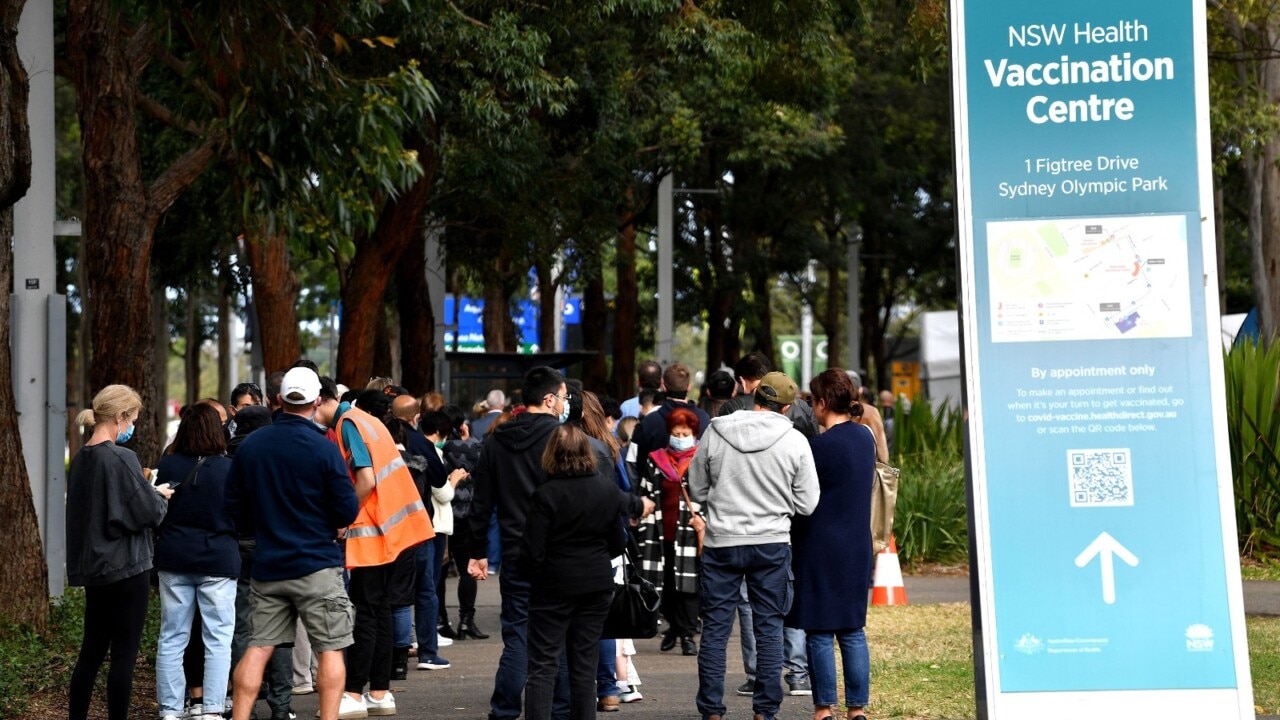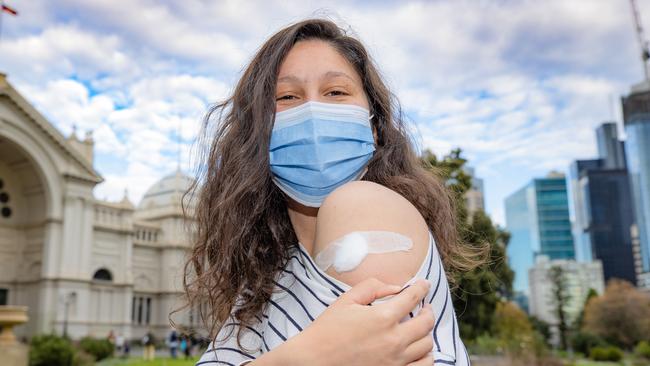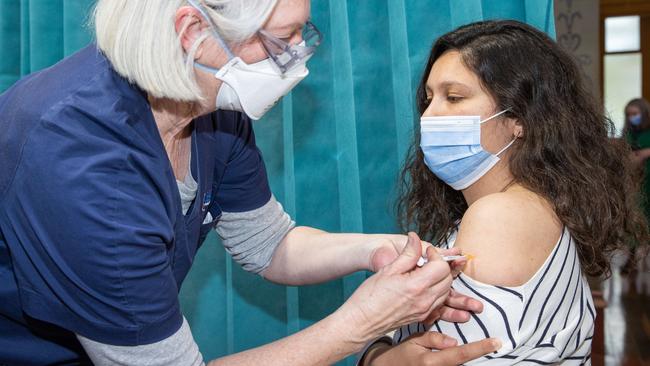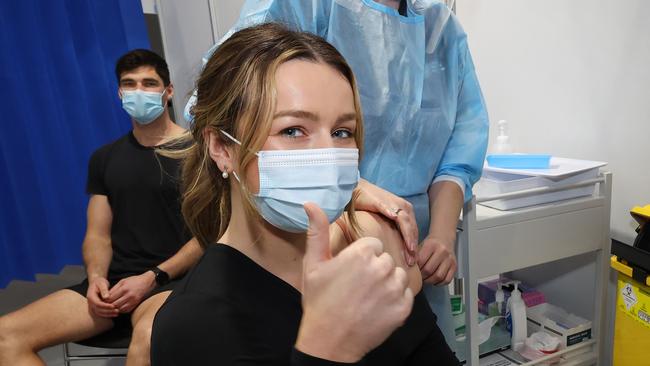When Victoria will hit 70 per cent vaccination rate
When Victoria will reach the critical 70 per cent vaccination mark can be revealed, but there are concerns we’re lagging behind other states.

Coronavirus
Don't miss out on the headlines from Coronavirus. Followed categories will be added to My News.
Victorian doctors are administering fewer than half as many vaccine doses as their New South Wales counterparts every day, leaving our state lagging behind in the race to meet the targets to reopen.
Based on current averages, 70 per cent of Victorian adults will be fully vaccinated against Covid-19 by November 21 – five days after the nation reaches that critical mark to limit lockdowns and ease restrictions on the vaccinated.
Victoria is on pace to hit the 80 per cent target by December 13 – three weeks after NSW and also slower than Tasmania, the ACT and the Northern Territory. Under the national cabinet’s plan, states can progress through the reopening phases once the vaccine targets have been met both nationally and in their own jurisdictions.

In NSW, the vaccination rate has drastically increased amid its worsening outbreak. Over the past week, NSW GPs delivered 398,940 doses compared to 172,405 doses by Victorian GPs.
The performance of state-run vaccination facilities across the two biggest states has been more comparable, with the jab rate in Victoria’s mass hubs now being lifted by the rush of people under 40 getting the AstraZeneca vaccine.
The Herald Sun can reveal that since Scott Morrison opened the door at the end of June for under-40s to access AstraZeneca, 31,510 young Victorians have received a first dose and 12,635 have had both.
Premier Daniel Andrews said on Tuesday that Victorians aged 18-39 were making an appointment every seven seconds for the jab.

A total of 2366 first doses of AstraZeneca were administered in that age group on Monday, which Health Minister Martin Foley said was a three-fold increase on the previous Monday. More than 13,000 young Victorians have also booked in to be vaccinated since the state government at the weekend allowed hubs to start giving AstraZeneca to under 40s.
But Wyndham Council on Tuesday night urgently called on the state government to provide a local seven-day-a-week vaccination hub for 18-39 year-olds. Mayor Adele Hegedich said the LGA’s young people had been ignored.
“Fifty-six per cent of Wyndham’s 280,000 residents are under 35 and, as the recent outbreak has demonstrated, they desperately need access to vaccinations,” she said.
“Currently, the closest state-run vaccination hub is in Sunshine or Geelong.”
In more concerning developments last night, the Caroline Springs Square Shopping Centre was deemed a Tier 1 exposure site from August 2 to August 5 for all staff.
Australian Medical Association state president Roderick McRae warned some GPs were feeling “jaded and fatigued”, and more had doses that were about to expire than problems obtaining more supplies. “Many GPs, and probably more their staff, have been abused by frustrated and angry people,” he said.
“They have had plenty of people cancel, particularly second AstraZeneca (doses).”
Dr McRae said he expected the rollout would accelerate as eligibility was expanded. “One of the key mechanisms of us all getting out of these recurrent lockdowns is to have a high percentage of (us) vaccinated.”

University of South Australia biostatistics expert Professor Adrian Esterman said increasing supplies of Pfizer, coupled with the arrival of the Moderna vaccine next month, meant all jurisdictions would be able to significantly ramp up rollouts.
“The key there is not to rely on GPs but rely on pharmacists and vaccine hubs, which I’m sure the Victorian government will do,” he said. Victorians in their 30s are expected to get access to Pfizer and Moderna within weeks, in line with modelling from the Doherty Institute that showed younger adults were the most likely to spread the virus. Mr Foley said it was clear there was a “strong emphasis” among young people to get vaccinated.
“Clearly, young people have assessed their personal situation in a strong and informed manner and many are determining that there are significant risks in remaining unvaccinated during the Delta outbreak, and during lockdown, and they’ve made a decision where their interests and the community’s interest lies,” he said.
“They’re doing it for themselves, for their family and for their local community and cultural organisations ”.




